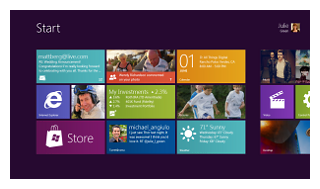So, Oracle finally gave up on OpenOffice. Good for them. I just wish it hadn’t been so long a process!
Oracle Donates OpenOffice.org Open-Source Project to Apache
“In a surprising move, Oracle hands over the source code for OpenOffice, the popular open-source office-productivity suite to its erstwhile adversary, Apache.
The open-source office-productivity suite OpenOffice has a surprising new home: Apache. There was some speculation Oracle might donate the project to the The Document Foundation, the group of developers that split from OpenOffice to launch LibreOffice last fall.
OpenOffice will join Apache Software Foundation as an ‘incubator’ project, Oracle said June 1. As an incubator project, OpenOffice must mature and prove its viability and sustainability before graduating to full project status. Oracle has assigned the trademark to Apache, as well.
‘The Apache Software foundation’s model makes it possible for commercial and individual volunteer contributors to collaborate on open-source product development,’ Oracle said.
Oracle had promised that it would fully relinquish control over the open-source project and donate it to the community April 15. The company also appears to be trying to silence its critics who claim the database giant is anti-open source. Donating the code to venerable Apache, home of the popular Apache Web Server, proves that Oracle is committed to the developer and open-source communities, the company said.
“Donating OpenOffice.org to Apache gives this popular consumer software a mature, open and well-established infrastructure to continue well into the future,” said Luke Kowalski, the vice-president of Oracle’s corporate architecture group.
The move was surprising, as Oracle and Apache have had a contentious relationship over another open-source project, Java. Oracle subpoenaed Apache as part of its lawsuit against Google for violating Java patents in the Android mobile operating system. Oracle also blocked Apache’s Project Harmony from getting a Java license, which resulted in Apache quitting the Java Community Process in protest.
IBM relies heavily on OpenOffice and the ODF (Open Document Format) for its own Lotus Symphony office suite. The company, which had been lobbying for Oracle to spin off Open Office in the first place, immediately welcomed Oracle’s decision.
 Is that good? It is all “tile-based” and colorful, but will it be usable?
Is that good? It is all “tile-based” and colorful, but will it be usable?